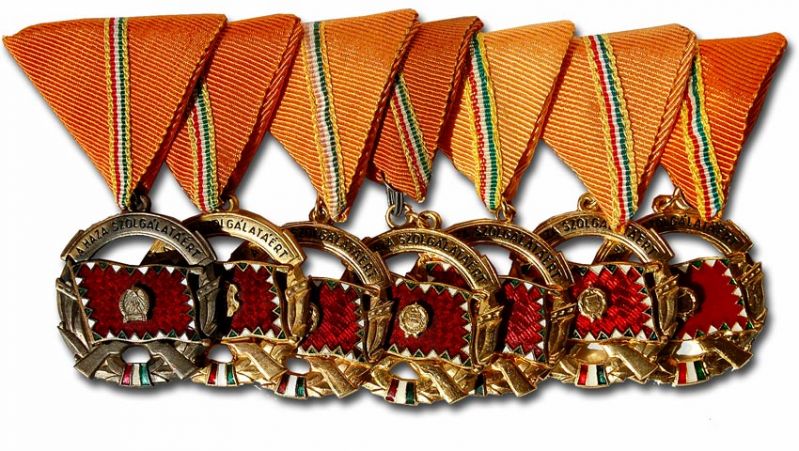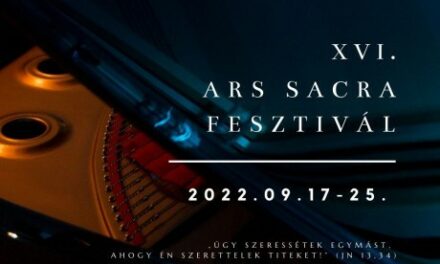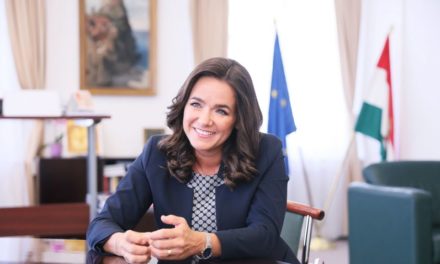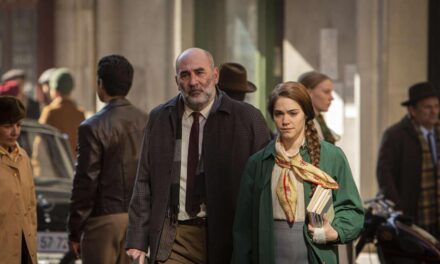The historian Zsuzsanna Borvendég's series was originally published on the PestiSrácok website, but there are certainly those who missed it. But those who haven't read all the parts should also read it again. Knowing the whole picture, can we understand how we got here?
Norbert Siklósi , together with the Ministry of the Interior III/I. With his group leadership (intelligence), in 1988 he decided to buy Sándor Újváry 's Griff Publishing House. The buyer was partly the Interedition Foreign Language Magazine Publishing Subsidiary owned by the Pallas Publishing Company, and partly a private person. You have already read about the background of Interedition and the contact system of the intelligence officer involved in the action. Let's see who the mysterious private man was!
The Interedition and the Ministry of the Interior alone were not enough to manage the sale. BM's involvement was conspiratorial from the start; the intelligence did not make a big fuss about opening an infiltration channel in a hostile area, but the appearance of Interedition as an owner would not have been favorable from a tax point of view either. Due to German tax laws, the best solution seemed to be for the buyer to be a private individual with German citizenship. This contradicted Újváry's last will, which stipulated that his publisher be transferred to a Hungarian legal entity, but the widow's resistance was quickly overcome.
was an János Molnár Dr. János Papp mediated it to the heir. Their main argument was that the real owner would not be Molnár, but the biggest Hungarian publishing company, Pallas; Molnár's presence is only necessary because of the cumbersome legislation. János Papp , who occasionally assisted the state security in conducting other actions, set off for the FRG on September 15, 1988, in the company of György Dalmady The negotiation proceeded smoothly, and the German authorities registered the new owner on October 6, 1988.
An agent from the past
János Molnár did not fall into the case by chance, he had been working as a state security agent for a long time under the code name "Burford". He left Hungary for the first time in December 1956, but returned home in the summer of the following year. In order to integrate into the system and "forgive" the authorities, he began active work in the circles of the KISZ, where he announced, uttering the propaganda-flavored speeches expected by the party, that disillusionment with the capitalist world brought him home. As a driver, he was an employee of Tefu and later of Főtaxi, and he tried to make the most of the profit-making opportunities arising from his job, exceeding the legal limits. He has been busted several times for committing small-scale public law crimes, but somehow he always escaped a more serious punishment. In 1970, he and his family left the country again, this time with a permanent intention. He first visited his father living in Austria, but soon moved to Germany and finally settled in Cologne. Thanks to his good relationship-building personality, he quickly became a well-known and well-liked member of the local Hungarian community. As a regular visitor of the Cologne Hungarian House, he was primarily active in church circles.
In 1983, he unexpectedly visited the Hungarian embassy in Bonn and through them made an offer to cooperate with the internal affairs bodies. He referred to the fact that he had previously been in occasional contact with state security. Behind her unexpected application was the direct intention that she wanted her daughter, who was about to graduate, to teach at a Budapest university from the next academic year. He accumulated a lot of video tapes, on which he recorded various events of the Hungarian House and, in general, commemorations and meetings of emigrant Hungarians. He delivered these tapes to the Ministry of the Interior through the embassy. Of course, the intelligence leaders thought that "Burford" had visited the embassy on behalf of the German secret services, but they found no signs of this, so they considered Molnár's daughter's intention to study in Budapest acceptable, and they even awarded her a scholarship on behalf of the World Association of Hungarians. thereby binding the prospective agent.
The "service of the country"
During the following years, János Molnár actively reported to Hungarian intelligence , the documents of his operation are preserved in four large volumes by the ÁBTL. He carried out his activities out of "patriotic enthusiasm" and did not receive direct benefits for it, although his expense accounts and economic frauds carried out by covering up the organization meant a secure income for him. His maintenance officer György Dalmady , with whom his relationship could be said to be very close. Their shared past was revealed to the state defense only after the series of joint crimes committed by exploiting the internal affairs defense became evident in 1989. Distant family ties and childhood years spent together laid the foundation for their joint "work", the smuggling activity that grew in size from 1987.
On November 6, 1988, Molnár was honored by the Hungarian People's Republic with the gold grade of the Medal of Merit for Service to the Homeland, which he received secretly under conspiratorial circumstances. He would have expected other "respect" for his services; indicated his application for admission to the ranks of the MSZMP. His security officer and his superiors did not shy away from the possibility of seeing their active agent in the ranks of the party, and even - since there was already a precedent for this among the network - they recommended his hiring according to the "already developed conspiracy rules". Molnár not only knew Dalmady for a long time, but was also in contact with Siklósi. The documents do not reveal where their acquaintance came from, but we do know that the smuggling provided by Dalmady also benefited Siklósi : in 1988, Molnár brought the technical equipment of a service station onto a truck across the border, which, according to state security, was then operated by Norbert Siklósi's son In Budapest.
One-third brotherhood
The joint venture Interedition-Griff was established under the name of Griff Kontinent by the partnership agreement signed on January 15, 1989. By order of the Ministry of the Interior, the contract was provided with a secret clause, in which III/I. Group leadership stipulates the financial share it requests from the expected business profit. Among the "civilians" in the case, only Norbert Siklósi and dr. János Papp may have known him. According to the agreement, one-third of the business profits belonged to state security. Interedition and János Molnár also shared the same proportion of the profit. The fraternal sharing was based on mutual trust, but it soon became clear that this premeditated gesture was premature. This time it wasn't the interior that crossed the minds of his "customers". Intelligence financed the purchase of the copyrights owned by Griff Kiadó with thirty thousand West German marks, thinking that the other two owners would enter the joint venture with a similar capital share. However, this did not happen. "Burford" only offered his own Mercedes car as a contribution to the company, while Siklósi bought an office space in the property owned by Pallas as a share, meaning that no cash went into the landlord's coffers at all.
Siklósi tried to organize the foundations of the new company's operation in alternative ways. Back in the fall of 1988, he obtained for Interedition the right to distribute all Hungarian newspapers published in foreign languages, and requested and received a bank guarantee from the Magyar Nemzeti Bank and the CIB for a loan requested from a Swiss bank. Through the intervention of "Burford", the financial institution of the Alpine country provided Pallas with a loan of one million dollars at an annual interest rate of 4-5%, which was then passed on to the Hungarian National Bank at a significant profit. The MNB used the offered amount for economic utilization, "thanking" the transaction with an annual interest rate of 6-7%, and the interest difference formed the financial basis of Griff Kontinent. The acquisition of TDK's exclusive domestic distribution was also intended to serve the stability of the publisher. In this case, the trial began in III/II-8. With a department that, among other things, managed the prevention of public companies participating in international trade and scientific and technical areas. The cooperating partner became Skála World Trade, with whose director, Tamás Gacsályi , they signed an agreement. According to the documents, Gacsályi was involved in the "business" that was expanding like an octopus at Dalmady's special request, but we cannot determine whether he was interested in Dalmady's other activities from the available documents. The cooperation meant that TDK would have delivered its products to Hungary only through János Molnár We no longer know whether the exclusive representation contract has been concluded or not.
The fall
In the meantime, the investigation after the "Kolter" case described in the previous section made Dalmady's position in intelligence more and more uncertain. Nevertheless, in the first months of 1989, he was still leading the operations assigned to him, but his superiors were already keeping an eye on his every move. He tried to put his relationship with Siklósi on a more secure basis by both applying to the head of intelligence, János Bogye , to appoint Dalmady as Siklósi's deputy at Griff Kontinent. They referred to the operational interests of the Ministry of the Interior, but presumably they only wanted to support their own businesses with help from the interior, and in such a way that no one but Dalmady could see into their actual activities. Later, when Dalmady was suspended in March 1989 and the investigation into his case began, he explained to his acquaintances and "business partners" the proceedings initiated against him by saying that it was all a tactical trick on the part of the body, so that he could take over his appointment as director "cleaned up".
By the beginning of 1989, the deals linked to Dalmady had become so powerful that the Ministry of the Interior was unable to put the genie back in the bottle. Due to the lack of money, Griff Kontinent Kiadó was practically inoperable. Molnár and Siklósi demanded more and more often from the intelligence to provide additional financial support to the joint venture. "Burford" even mentioned the smuggled service station, which according to the documents was operated by the Siklós family, as a capital share. Dalmady's boss, Col. Gábor Szűcs, realizing the hopelessness of the business and the uncontrollable actions of the partners, suggested in mid-May that they immediately get out of the joint business as long as they only lost the thirty thousand marks paid in with the action and no more. However, it was no longer possible to get out.
Source: PestiSrácok
Author: historian Zsuzsanna Borvendég
(Cover image: signum-laudis.hu)












